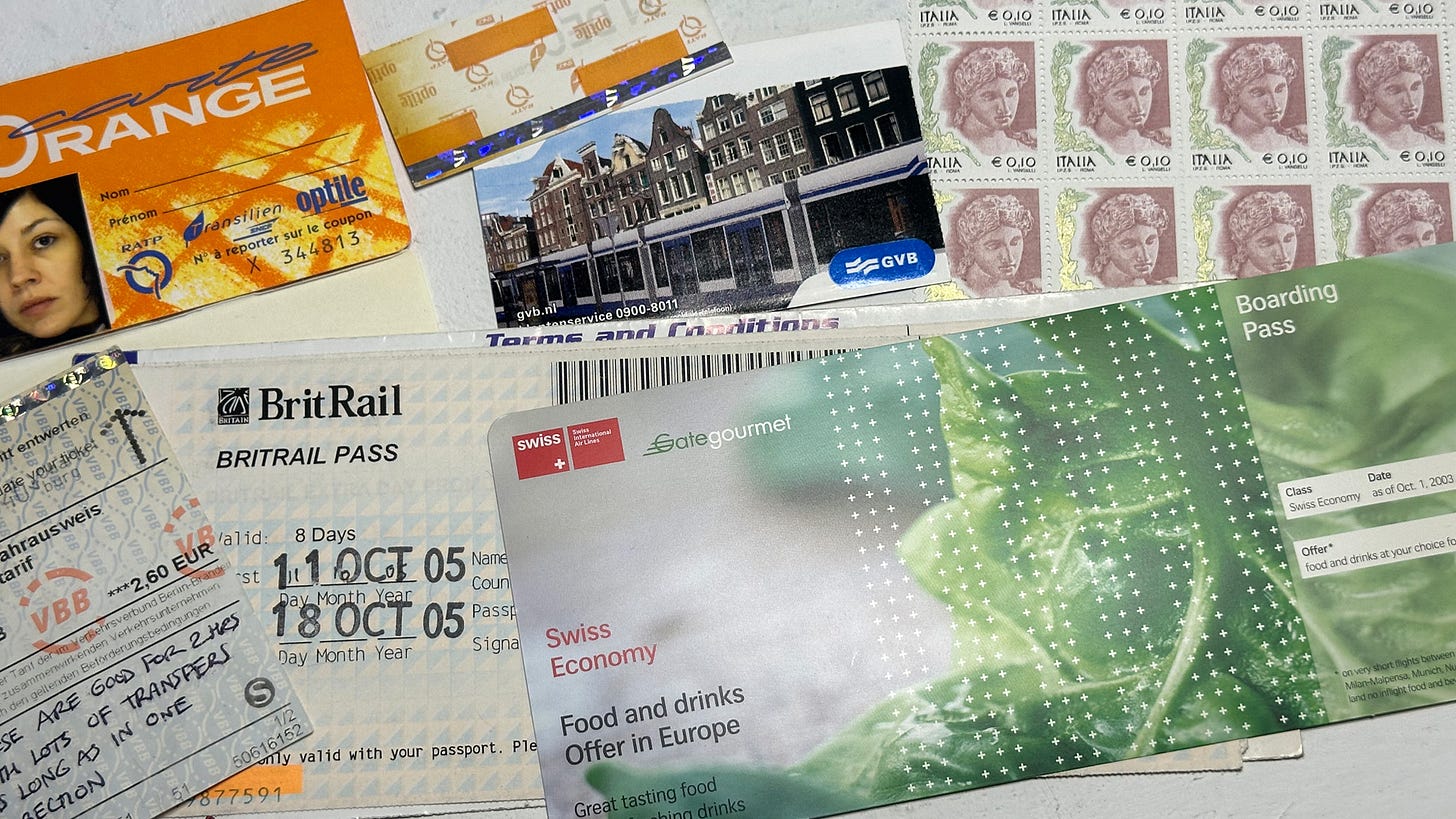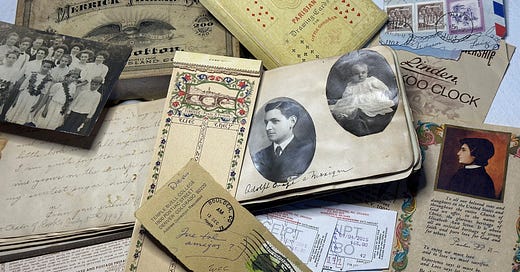No. 14 The Future of Ephemera
In which past and present swap places as I contemplate the role of paper and its connection to memory and culture
Friends— Paper has been on my mind a lot lately.
The miscellany of paper bits —life’s many records and bills of lading— are termed ephemera, defined by Google’s dictionary as “things that exist or are used or enjoyed for only a short time.” Oddly enough, in the relentless march of the digital era (perhaps even in response to it) paper ephemera finds itself with a renewed relevance; its initial fleeting utility or enjoyment is being prolonged. Conversely, the digital facets of our screen-laden lives have taken on the mantle of ‘ephemera’ in its literal sense: social media, engineered for brevity, is emblematic of this transience.
Meanwhile, paper exhibits remarkable longevity. Across centuries, countless remnants endure, bearing witness to lives lived—journals, ledgers, letters, sketches, receipts, newspapers, notes— the list goes on. Paper, in the digital age, defies its ephemeral label.

A significant market exists for vintage and antique paper artifacts. Once-mundane remnants of daily life are sought after. Some bear so little resemblance to their contemporary counterparts as to seem like pieces of fine art in themselves. A receipt handwritten with a quill pen in 1903 is a thing of striking beauty compared to its modern equivalent, which will, in any case, fade and disappear due to the nature of thermal printing— sadly stripped of any opportunity to one day become a long lost treasure.
Paper, in the digital age, defies its ephemeral label.
Many collectors of ephemera are creatives. Engaged in mixed media, collage and other forms, they preserve or repurpose small histories into new works, recontextualizing the past rather than deleting it. While platforms like eBay and Etsy still have a fair amount of ephemera on offer, prices have risen as the availability and quality have diminished— even resulting in a proliferation of printed reproductions and digital scans as less expensive replacements.
For a long time, I suppose it was presumed that paper ephemera would simply continue to accrue in each era’s new styles and mediums and replace the old, but the trend is reversing. Records, receipts, boarding passes and correspondence now reside in the digital realm. Paper has fallen out of favor, largely relegated to dumpsters upon a loved one’s passing, save for the obvious select items such as birth certificates and photographs.
As Sam said of the passing of elves out of Middle Earth, “It makes me sad.”

In light of our planet’s ecological concerns, I suppose it’s only fitting for paper to eventually go the way of other obsolete technologies. Current and future generations may reminisce by accessing cloud-stored memories, although even these digital archives may not endure. It seems unlikely that the archives of social media, for example, will remain; think of MySpace, Friendster, AOL. Other digital artifacts, like email, photos, and videos, rely on automatic backups by tech giants, raising concerns about future compatibility and access. What will be the price for a subscription to one’s own memories?
As Sam said of the passing of elves out of Middle Earth, “It makes me sad.”
Much will be lost.
But— much has always been lost, and few have ever been archivists. Preservation is ever left to chance, and the careful curation of those in control of the larger narrative.
Still, I wonder about the evolution and future of memory (a slippery thing to begin with). Digital storage, aptly named ‘memory,’ assumes an increasingly vital role as custodian of both our daily and long-term records and recollections.
For my part, I won’t rely solely on this new ephemera; my sketchbooks, journals, and printed photos have already outlasted numerous digital platforms. Paper continues to enchant me— a charming technology, elegant and enduring in its simplicity.
Are you a paper-obsessed Luddite* like me, or do you fully embrace a paperless future? If the latter, is it for ecological reasons, or more from that sense of being ‘allergic’ to the weight of the dusty past? Let me know in the comments.
As always, thanks for reading. I hope it will spark some thoughts, instigate debates or conversation, or— at the very least, has been entertaining.
x Liz
*I exaggerate when I say Luddite— I spend a ridiculous amount of time on digital platforms, both on the job and off— and I’m just as scrupulous about archiving the digital as I am the physical.





